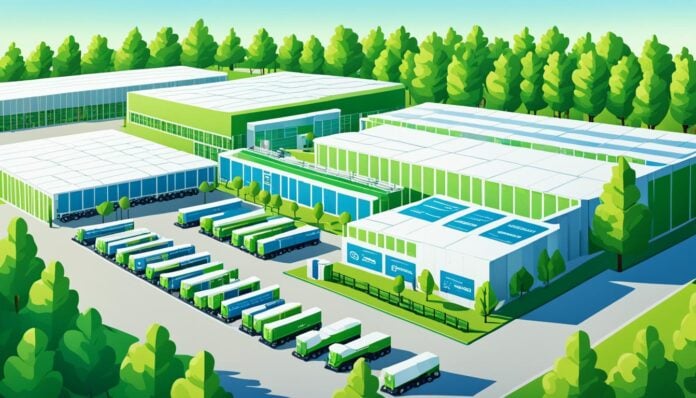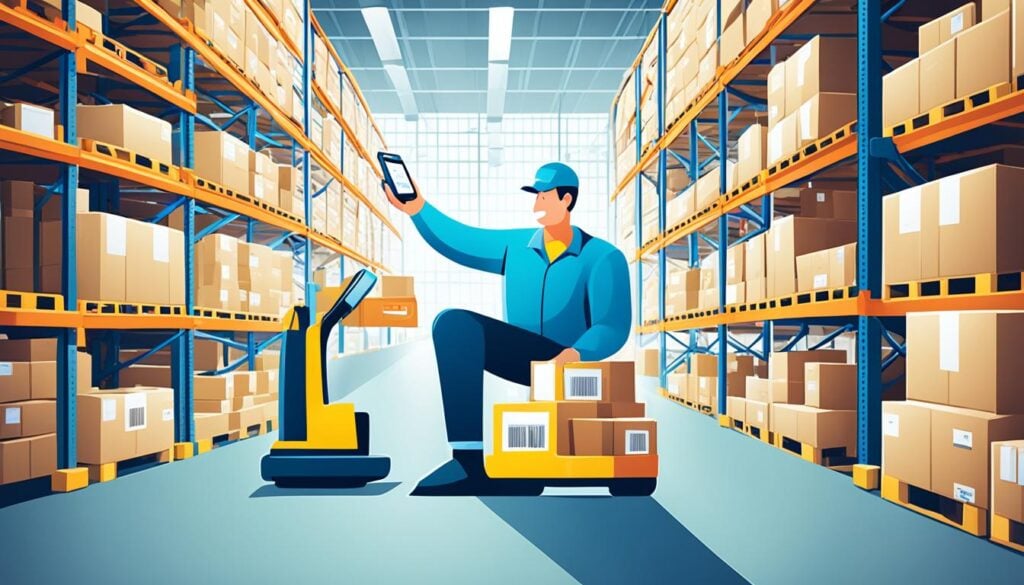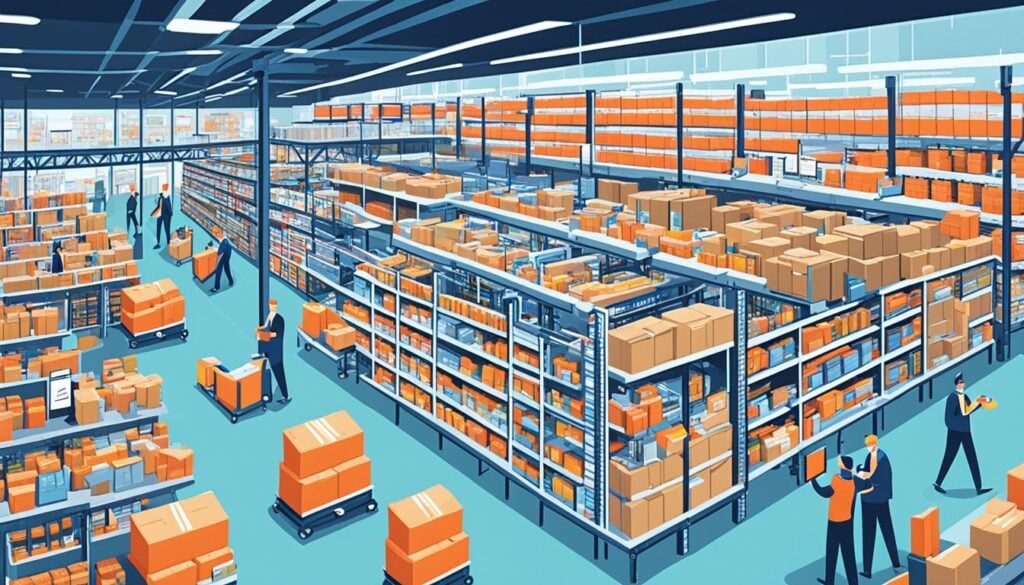As the FMCG sector continues to grow rapidly, businesses are constantly seeking ways to enhance their processes and stay ahead of the competition. ERP systems offer a comprehensive solution that integrates various business functions into one centralized platform, enabling streamlined operations, data-driven decision-making, and improved customer satisfaction.
Whether you are a small, medium, or large FMCG company, implementing an ERP system can be a game-changer for your business. From inventory management to supply chain optimization, ERP provides a wide range of features and functionalities that can help you overcome the unique challenges faced by the FMCG sector.
In this article, we will provide you with valuable insights into the benefits, challenges, and importance of ERP in improving operations and efficiency for FMCG businesses in Singapore.
Key Takeaways
|
Table of Content:
Table of Content
What is FMCG Sector?
In this section, we will define the FMCG sector and provide an overview of its key characteristics. FMCG refers to a wide range of consumer goods that are sold quickly and at relatively low cost. These goods are considered essential in our daily lives, including food and beverages, personal care products, household cleaning products, and more.
The FMCG sector plays a vital role in the global consumer goods industry, catering to the everyday needs and preferences of consumers. With its fast-moving nature, FMCG products have a shorter shelf life and require frequent replenishment, making the industry highly dynamic and responsive to changing market demands.
To give you a better understanding of the FMCG sector, let’s take a closer look at some of the key categories of consumer goods included:
- Food and beverages: This category includes perishable and non-perishable items such as dairy products, snacks, beverages, packaged foods, and more.
- Personal care products: This category encompasses products like soaps, shampoos, cosmetics, skincare items, oral care products, and grooming accessories.
- Household cleaning products: This category includes cleaning agents, detergents, disinfectants, air fresheners, and other household cleaning essentials.
- Healthcare products: This category comprises over-the-counter medicines, vitamins, supplements, medical devices, and other healthcare-related products.
- Baby care products: This category includes baby diapers, wipes, baby food, formula, skincare products, and other essentials for infants and young children.
The FMCG sector’s significance in the consumer goods industry cannot be understated. It caters to the basic needs of consumers and has a widespread impact on economies worldwide. With its fast-paced nature and high competition, FMCG companies strive to optimize their operations and deliver quality products efficiently.
As we delve deeper into this article, we will explore the challenges faced by the FMCG sector and the role of ERP systems in addressing them.
Challenges in The FMCG Sector
In the fast-paced world of the FMCG sector, businesses face numerous challenges that can impact their operations and profitability. In this section, we will delve into some of the key challenges faced by FMCG businesses and explore how ERP systems can help overcome them.
Managing Inventory
Effective inventory management is crucial for FMCG businesses to meet customer demands while minimizing costs. With a wide range of products and fluctuating consumer preferences, efficient inventory management becomes a challenge. FMCG companies need robust systems to accurately track stock levels, optimize reorder points, and ensure timely replenishment.
Lowering COGS (Cost of Goods Sold)
Cost control is essential for FMCG businesses to maintain profitability. However, escalating costs of raw materials, transportation, and labor can significantly impact the COGS. Implementing an ERP system enables businesses to streamline procurement processes, negotiate better supplier contracts, optimize production, and reduce wastage, leading to lower COGS.
Disrupted Supply Chain
In today’s globalized economy, FMCG businesses often face supply chain disruptions due to various factors such as unforeseen events, natural disasters, or geopolitical issues. These disruptions can lead to delays in production, distribution, and a shortage of products in the market. By integrating supply chain processes through an ERP system, businesses can gain real-time visibility, optimize logistics, and quickly respond to disruptions.
Maintaining High Quality
The FMCG sector operates in a highly competitive market, and consumer trust is built on the delivery of high-quality products. Ensuring consistent quality across all products and production batches can be challenging. ERP systems provide robust quality control modules that enable businesses to track and monitor quality at every stage of the production process, from raw material sourcing to finished goods.
Control Workflow
Efficient workflow management is crucial for the smooth functioning of FMCG businesses. With multiple departments and complex processes, ensuring proper coordination and control can be a daunting task. ERP systems offer comprehensive workflow management tools that streamline processes, automate tasks, and enhance collaboration among teams, leading to improved efficiency and productivity.
By addressing these challenges, FMCG businesses can enhance their competitive edge and drive growth in the dynamic consumer goods industry. Implementing an ERP system tailored to the specific needs of the FMCG sector can enable businesses to overcome these challenges and thrive in today’s market.
The Importances of ERP for FMCG Sector
In today’s competitive FMCG sector, implementing an ERP system is crucial for businesses seeking to thrive and stay ahead. ERP, or Enterprise Resource Planning, offers a wide range of features and benefits that can revolutionize operations, enhance efficiency, and improve decision-making. Let’s explore some key areas where ERP can make a significant impact on FMCG businesses:
1. Planning, Budgeting, and Forecasting
An ERP system provides robust planning, budgeting, and forecasting capabilities that enable FMCG businesses to strategize effectively. With ERP, you can gain valuable insights into sales data, market trends, and consumer behavior, allowing for more accurate demand forecasting and better resource allocation.
2. Multi-Channel Sales Integration with E-commerce
Integrating multiple sales channels, including e-commerce platforms, is essential in today’s digital landscape. ERP enables seamless synchronization of sales data across various channels, improving order management, inventory control, and customer experience.
3. Managing Multiple Branches and Locations
For FMCG businesses operating multiple branches or locations, ERP simplifies the management of operations and data consolidation. With a centralized system, you can efficiently track inventory, monitor sales, and ensure consistent business processes across all branches.
4. Sales Order Process Management
An efficient sales order process is critical to meet customer demands promptly. ERP streamlines the entire sales order process, from order creation to fulfillment and invoicing, reducing errors, eliminating delays, and improving customer satisfaction.
5. Batch Process Management
In FMCG manufacturing, batch processing is common for producing goods in large quantities. ERP offers features specifically designed to manage batch processes, such as tracking raw materials, optimizing production schedules, and maintaining quality control standards.
6. Advanced Inventory and Supply Chain Management
With real-time visibility and control over inventory and supply chain activities, ERP enables FMCG businesses to optimize stock levels, reduce waste, and improve order fulfillment efficiency. These features help minimize stockouts, eliminate excess inventory costs, and enhance customer service.
7. Cloud-Based Software
Cloud-based ERP software offers numerous advantages, including scalability, flexibility, and cost-effectiveness. By leveraging cloud technology, FMCG businesses can access their ERP system from anywhere, at any time, ensuring seamless collaboration and data availability.
8. Regulate Industry Workflow
ERP systems provide standardized workflows and automation capabilities, enabling FMCG businesses to streamline processes and enforce regulatory compliance. By implementing industry best practices, ERP helps optimize productivity, reduce errors, and ensure consistent quality.
9. Quality Control and Testing
Quality control is essential in the FMCG sector, where maintaining high product standards is crucial for consumer satisfaction and brand reputation. ERP facilitates comprehensive quality control processes, including testing, inspection, and compliance tracking, ensuring consistent product quality and regulatory compliance.
10. Payroll and HR
Managing payroll and HR processes can be complex in the FMCG sector, especially with a large workforce. ERP automates payroll calculations, tracks employee data, and streamlines HR processes, reducing administrative burdens and ensuring accurate and timely payment and employee management.
11. Scheduling and Sequencing
In FMCG manufacturing, efficient scheduling and sequencing of production processes are crucial to meet customer demands and optimize resource utilization. ERP provides tools for creating production schedules, sequencing tasks, and tracking progress, leading to improved productivity and timely order fulfillment.
HashMicro ERP System as The Best Solution for FMCG Sector
Implementing an ERP system in the FMCG sector offers significant advantages and enhances overall business performance. From optimizing planning and forecasting to integrating sales channels, managing inventory and supply chain, and ensuring quality control, ERP becomes a valuable asset for FMCG businesses seeking to thrive in today’s competitive market.
HashMicro ERP system offers comprehensive features specifically designed for the FMCG sector. With modules such as inventory management, order processing, sales forecasting, and supply chain management, this system seamlessly integrates all aspects of the business. This ensures efficient collaboration between departments, enhances productivity and ultimately leads to better decision-making.
One of the significant advantages of HashMicro ERP system is its ability to handle large volumes of data in real-time, making it one of the best ERP software for large companies. FMCG companies deal with massive amounts of data daily, from sales transactions to inventory levels. With this ERP system, businesses can retrieve accurate and up-to-date information instantaneously, allowing for timely decision-making and minimizing the risk of errors.
Moreover, HashMicro ERP system provides valuable insights through advanced reporting and analytics. The system generates comprehensive reports that help FMCG companies analyze their performance, identify areas for improvement, and make data-driven decisions. This empowers businesses to stay ahead of the competition and adapt to market trends effectively.
Conclusion
In conclusion, implementing an ERP system is crucial for FMCG businesses in Singapore. Throughout this article, we have discussed the challenges faced by the FMCG sector and how ERP systems can address them effectively.
ERP systems offer numerous benefits, including improved operations, increased efficiency, and better decision-making. By integrating planning, budgeting, and forecasting functions, businesses can optimize their resource allocation and enhance overall performance.
HashMicro ERP system is the best solution to implement if you want a complete and comprehensive system. With customizable features and dashboard, HashMicro ERP system can streamline any complex business progress. Try the free demo now!


























































